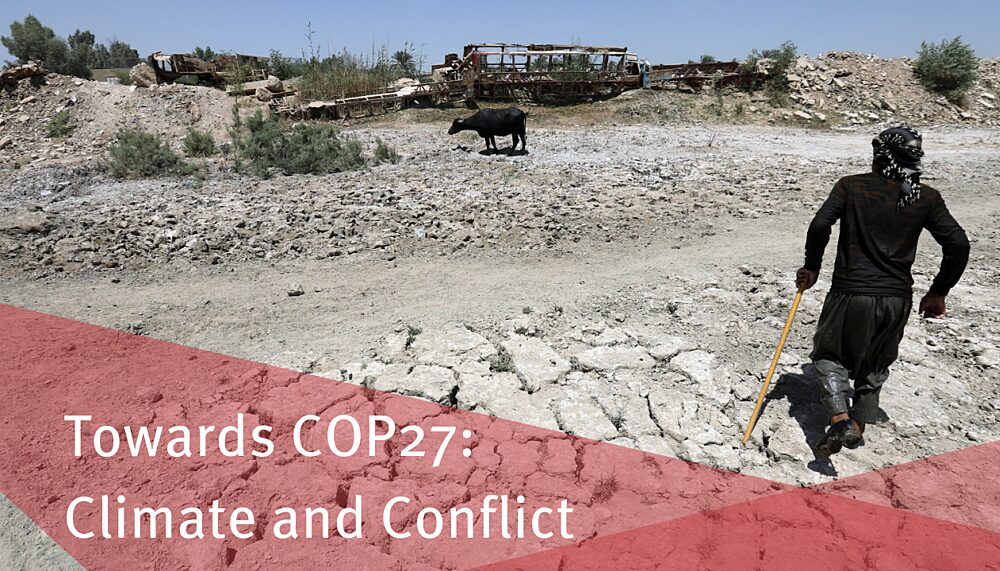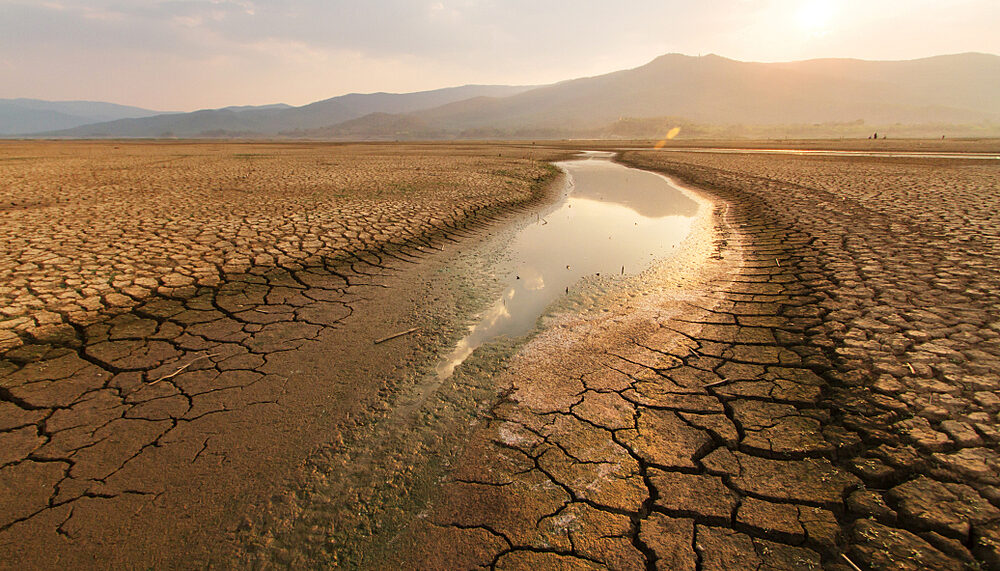FEATURE | 2 Nov 2022
Addressing climate-security risks in Iraq
Towards COP27: Our article series on climate and conflict

Many regions in Iraq are facing acute water shortages. Inclusive dialogue settings and climate-focused mediation can help with responding to such climate risks.
For many farmers in the Dhi Qar and Missan governorates of Iraq, a lack of water is making their lives more and more challenging. An increase in temperature, heat waves, irregular and less precipitation and desalination – all a result of climate change – have led to crop failures and a loss of livestock. Other parts of the country also face severe water shortages mainly due to reduced water inflows, rapid population growth and high withdrawal rate for agricultural use.
The impacts of climate change push people into illicit economies and lead to conflict over natural resources in Iraq. Dialogue and mediation efforts at the local level are vital for people to effectively adapt to these circumstances.
Pushed to the city
Our research in the Dhi Qar and Missan governorates of Iraq shows that the effects of climate change present a clear danger to the livelihoods of young Iraqis, as the water shortages have forced many to leave their farms. Those displaced often move to the urban centres of Basra, where they live in informal settlements with no access to the water supply network and the electrical grid, and few job opportunities. With the unemployment rate especially high among young people, many are left with little choice but to turn to illicit economies to find a source of income. When livelihoods are increasingly untenable, people can become susceptible to engage in violent or criminal activities.

To counter those risks, the social dimension of climate adaption urgently needs to be prioritised. Dialogue between vulnerable groups living in the informal settlements and the local administration in Basra is paramount. Such a dialogue would allow the grievances and needs of those Iraqis displaced by climate change to be heard. It would also help the different actors to understand the climate risks that cause a rise in unemployment, illicit economic activity, and criminal networks in Basra. This would be a first step towards addressing climate security risks. Inclusive dialogue settings should lead to jointly formulated policy strategies without securitising responses.
Tensions over water resources
Our research shows that tensions over river access is another consequence of climate change in many districts throughout Iraq. In Hamza (parts of the Euphrates river), Hawija (Az Zab river), Kalar (Siwan river), and Beiji (Tigris river), shared water resources are serviced by the village closest to them. This ‘first come first served’ approach often results in limited access to water for the villages further downstream as river levels are falling. Tensions between different tribes and villages over shared water resources are partly escalating to violence, particularly in areas where natural resource and conflict management institutions are dysfunctional.
Climate-focused mediation can help with formulating conflict-sensitive adaptation techniques for shared rivers. Mutual concerns over climate change present an entry point for inclusive dialogue between different tribes and villages. Such a dialogue can assist in organising the flow of communication and help people find effective ways to share the water. Climate-focused mediation can also facilitate building trust between different groups in order to allow for cooperation and mutually acceptable agreements over shared water resources.
In Iraq, conflict transformation approaches such as inclusive dialogue settings and climate-focused mediation can be an effective tool to respond to climate risks and their impact on existing conflict dynamics. This shows why the social side of adaption should not be ignored at the upcoming COP27 in Sharm El-Sheikh.
Towards COP27: Our article series on climate and conflict
The Berghof Foundation is active in both facilitating dialogue and strengthening climate-focused mediation. In the lead up to COP27, we will be presenting our work in Iraq and Somalia already using these approaches.
Media contact
You can reach the press team at:
+49 (0) 177 7052758
email hidden; JavaScript is required


